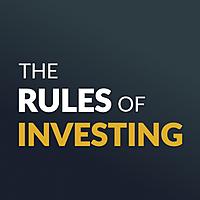3 compelling long-term ETF ideas for investors still on the sidelines
Heflstein has a unique background for an investment professional, including stints at the Combating Terrorism Centre at West Point, and as a senior fellow at the Centre for Cyber and Homeland Security, at Auburn University.
The common thread between these two seemingly opposing career paths is priortisation and, more specifically, resource allocation.
“Fundamentally, if you're trying to pick investments, you've got constrained or finite resources that you want to allocate to where they will do the best good.
In the investment world, it's the best return.
There's a very similar problem when you're looking at terrorism, insurgency intelligence, military activities; you've got a finite resource pool and you're trying to figure out how to prioritise against different threats. So it's really about resource allocation at its very core… that is the overlap”.
Breaking the style box
Perhaps this lens, of looking at a problem and finding the most efficient way to achieve a result, has also shaped Helfstein’s investment philosophy regarding thematic investing.
He held a senior role in thematic investing at a major US investment bank long before joining the ETF revolution, and the appeal, according to Helfstein, is that it “breaks the style box.”
To hammer home the point, he points to current sectors and the sometimes head-scratching outcomes they produce.
“Sectors are really one of my sticking points because you've got airlines that, for example, are in the industrial sector and you have hotels that are in the consumer discretionary sector.
And you know what we learned during COVID? Those things are highly correlated - if people don't get on planes, they don't stay in hotels.
And yet we invest in the consumer segments at different times of the economic cycle that we would invest in the industrial segments”, says Helfstein.

Helfstein's other bugbear is that whether you're talking about value or growth, size or sectors, it’s all backward-looking. He contends that sectors are historical constructs based on past performance or characteristics of companies based on “an economy that arguably doesn't exist anymore or is fundamentally changed.”
Thematic investing, on the other hand, allows you to develop a "vision for what the economy will look like in the future, and then reverse engineer and ask, 'What are the new industries and what are the segments that are going to get us there?'"
“So I'm not stuck just buying a categorisation that's 50 years old. I can buy something that I think is going to drive us”.
Markets right now
As for how Helfstein is seeing markets right now, he believes we’re all spending too much time focused on interest rates.
While it’s a US-centric example, Helfstein points out that the US economy grew “at 5.4% from 2001 to 2019”, adding that “If we can grow at 5.4%, I don't care about rates”.
“Rates are a short-term vehicle to encourage growth. If you're growing, you're agnostic to what the rates are”.
Following on from this, Helfstein argues that “investors are still modestly underweight risk assets, and you want to participate in what's going on right now”.
“You don't want to be sitting on the sidelines”.
Helfstein submits that while investors have just lived through a turbulent time, the US economy, in particular, “is looking a whole lot more like mid-cycle expansion than late cycle”.
Three ideas to get involved
When quizzed about what ETF he would buy for the next five years if he could only choose one, Helfstein selects the Global X Artificial Intelligence ETF (ASX: GXAI)
As Helfstein explains, part of the reason for this is the valuation story; the S&P 500 is trading around 19x, whilst GXAI is trading around 19.5x.
“So you're basically getting what is the most dynamic segment of the economy, that really offers the opportunity for true transformation, and you're getting it at more or less the price you're paying for the S&P.
“That, to me, just screams opportunity”.
The other ETF that Helfstein likes is Global X US Infrastructure Development ETF (ASX: PAVE)
“This is not traditional asset owner annuity-type infrastructure,” says Helfstein, rather “These are the people that build it in the first place”.
He adds that with $1.2 trillion of spending underway via the Infrastructure Investment Jobs Act (IIJA), and another $600 billion stemming from the Chips Act ($300 billion government plus $300 billion private), the opportunity is compelling “and the valuation still quite attractive relative to the broader market”.
The final theme Helfstein mentions, as an opportunity potentially flying under the radar, is uranium, available via the Global X Uranium ETF (ASX: ATOM).
Over the next decade, as per the International Energy Agency, “electricity needs were already going to increase 20%”, says Helfstein, adding that “was before we really started thinking about the data centre build out that's going on. We need to power these things”.
Listen to the podcast
In addition to the highlights above, Helfstein shares more of his fascinating back story in the podcast, gives his take on the current state of geopolitics and Australia’s role within the broader landscape, dives deeper into why sectors are old-school and broken, and ranks some major market themes in terms of the size of the opportunity.
Other ways to listen
Timecodes
0:00 - Intro
1:12 - A unique background for an investment professional
7:17 - The current state of geopolitics
12:00 - Australia's position in the global landscape
14:10 - The appeal of thematic investing
16:42 - Where is the puck going?
22:53 - Sectors versus themes
26:48 - The role of thematic investing in a portfolio
28:46 - Nothing but ETFs?
30:27 - Ranking the big themes
34:22 - A theme that is flying under the radar
36:40 - Risks in thematic investing
38:32 - Mama's favourite son
39:49 - What are investors getting wrong?
41:07 - One theme for the next five years
Discover Global X's approach to thematic investing
An ETF lineup that spans disruptive tech, equity income, commodities, digital assets and more. Or simply put, Global X strives to offer investors something beyond ordinary. Find out more here.


4 topics
3 stocks mentioned
2 funds mentioned
1 contributor mentioned


